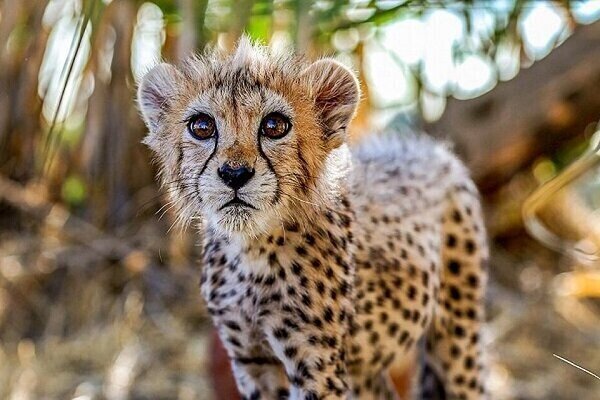Iran (IMNA) - After having dialysis the night before, he died at the Central Veterinary Hospital in Tehran.
Alireza Shahrdari, Pirouz's main caretaker, told reporters with teary eyes that caring for the cheetah cub was difficult since the cub, who was delivered through C-section and was not nursed, experienced a number of health difficulties.
Pirouz, whose name means "victorious" in Persian, was the only surviving Asiatic cheetah cub of "Iran" and "Firouz" to be born in May.
"Iran," a female Asiatic cheetah with a high possibility of conception, was moved to a fenced location in the country's center early last year and mated with "Firouz," a male cheetah.
Pirouz survived at a time when there are only a limited number of his species in the wild, although two of his siblings died in the same month.

Sadly, "Iran" refused to suckle her newborn pups. In addition to nursing, moms kiss the buttocks of their cubs to encourage them to defecate and pee, which Pirouz missed while in captivity.
According to the Cheetah Conservation Fund, an international organization committed to protecting the cheetah that was created in Namibia in 1991, chronic renal disease is frequent in confined cheetahs.
It is yet unknown why captive cheetahs are more susceptible to this illness than their wild counterparts, but nutrition, age, genetic variety, and chronic stress have all been mentioned as risk factors.
While they wait for an ultrasound to prove it, "Iran" is most likely pregnant once more, according to Amir Moradi, the director of the Central Veterinary Hospital.
The Asiatic cheetah (Acinonyx jubatus venaticus), which is somewhat smaller and lighter than its African cousin, is severely endangered according to the International Union for Conservation of Nature (IUCN).
Iran is the species' last bastion in its struggle for survival.
The world's fastest land mammal is presently only found in a few locations in Iran, mostly in the provinces of Semnan, Yazd, Kerman, and Fars.
In 2001, Iran launched a cheetah preservation initiative with UN backing. Beginning with a female cheetah named Delbar and a male named Kushki, attempts at captive breeding were made.
Delbar became naturally pregnant in 2015, however she tragically lost her cub. Kushki passed away in January from aging.
Cheetah populations are declining owing to a mix of human and environmental factors.

Prolonged droughts resulting in fewer food species and habitat degradation, road traffic accidents, and free-roaming domestic dogs endangering cheetahs and other predators through predation and disease transmission are all causes pushing cheetahs to extinction.
Hassan Akbari, a deputy environment minister, stated in January that the Asiatic Cheetah population was down to 12 from an estimated 100 in 2010.
Some feel that the cheetah population is bigger than reported because of inadequate surveillance in cheetah habitats.
By Elahe Seyfodin


Your Comment